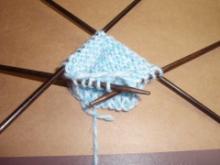At a Mohs surgery training course, sponsored by the American Society of Mohs Surgeons, I learned first-hand (no pun intended) about what the tech brings to this fascinating area of surgery.
Alexander Lutz, the owner of Travel Tech Mohs Services, Inc., Carson, Calif., said: "It's a rare relationship between physician and non-physician, even more so than a surgeon with his surgical nurse or tech. The nurse might be helping the surgeon, but you aren't depending on them to complete the surgery. With a Mohs technician, you are."
A physician who wants to learn Mohs surgery can choose to hire and train a formally educated lab tech or histotechnician – or pick a staff person to train. It can be a nurse or medical assistant, or even the office manager.
Mr. Lutz gave some pointers on picking the right trainee. Two characteristics are key: manual dexterity and a perfectionist personality. "In my experience, good Mohs techs have these things in common. I always ask if they have a hobby that shows dexterity-like knitting, musical instruments, or even juggling."
And though the perfectionist personality part might drive the doc nuts in a personal relationship, it will serve both well in the surgical suite. The success of Mohs surgery – and even the life of a human being – depends on those beautiful clear margins. The surgeon can only create those margins if there are plenty of beautiful slides to guide the surgery. And only a dedicated, skilled technician can make those beautiful slides.
— Michele G. Sullivan (@MGSullivan on Twitter)


